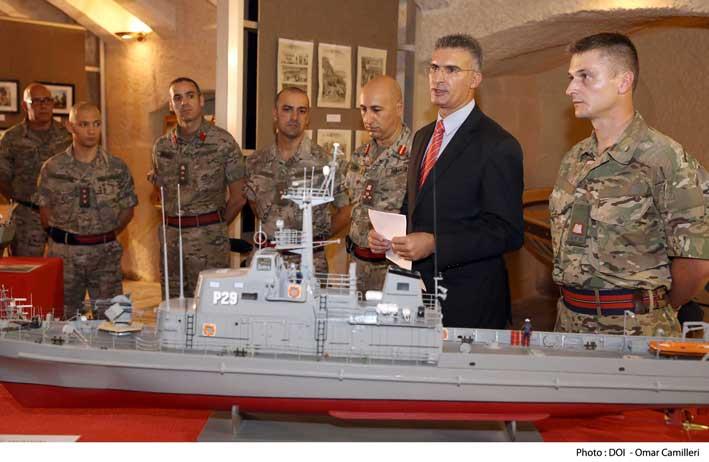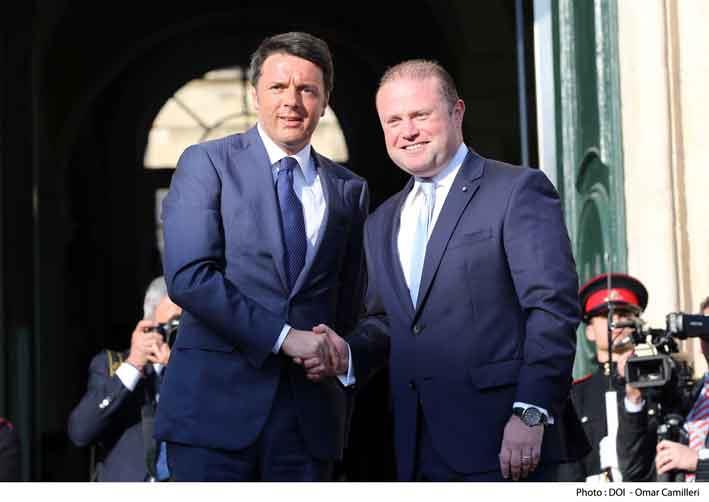Italian MEP Elisabetta Gardini has asked the European Commission to explain the abnormally low numbers of migrants being disembarked in Malta after being rescued at sea, and questioned whether the Commission is aware of any informal agreement between the Maltese and Italian governments related to rescue operations in the Mediterranean.
“How does the Commission explain the inactivity of the Maltese navy in recent months, which is demonstrated by the number of people arriving on the island?” read one question put forward to the Commission by Ms Gardini.
The Maritime Squadron of the Armed Forces of Malta has rescued 93 migrants since last January, when its search and rescue area covers 250,000 km² between Sicily and Libya. Over the same period, Italy has had a total of 121,139 migrants arriving on its shores.
Italian and Maltese authorities have a long history of conflict over migrant search-and-rescue operations. In 2013, in the Lampedusa tragedy in which 270 migrants drowned at sea, it was alleged that the Italian authorities waited for the troubled migrant boat to sail into Malta’s SAR zone before responding to the call for help, by advising the boat to call Malta for assistance.

The AFM issued a statement saying that the sinking of the boat, carrying 300 migrants, happened right in front of the eyes of the Italian Coast Guard boats as they were approaching it. The AFM also said it was more opportune to pass on the relevant information to the Italian authorities since naval vessels were much nearer than Maltese vessels.
But in the last year, there have been no such conflicts between the two authorities. This coincides with statements made by Home Affairs Minister Carmelo Abela last September, when he said that Italy and Malta had come to an informal agreement over who should bear the responsibility of migrant search and rescue operations. One hour after this declaration, a ‘clarification’ was issued in which the government vehemently denied the existence of such an agreement.
Allegations were then levelled by an Italian newspaper claiming that Italy is now taking the migrants “that Malta does not want” in exchange for drilling rights in areas under dispute between the Maltese and Italian governments.

When Minister Abela initially revealed the informal agreement, he described it as a sign of political maturity and also noted that, on several occasions in the past, the two countries had bickered over who should carry out search and rescue operations. He also said that the disagreements had come to an end.
Minister Abela’s initial remarks, coupled with the significant decline in the number of migrants rescued and brought to Maltese shores, all point to the existence of some of partnership between Italy and Malta. The extremely low number of migrants entering Malta’s shores is not consistent with the sheer volume of those fleeing via North Africa this year, in particular Syrians crossing over into Africa and then making the journey to Europe.
Although many Maltese citizens may well support an agreement that has led to fewer migrants arriving in Malta, this again raises concerns of secrecy. If Malta has given up any rights to drill for oil in Maltese territorial water, should the population not have the right to know? The question of financial loss from this alleged agreement also comes to mind.

The most pertinent question, perhaps, deals with the environmental issue: do the benefits of being relieved of migrant search-and-rescue responsibilities and all the costs that come with sheltering and providing for those rescued, justify the significant contribution to environmental degradation as well as the significant financial loss?
In December 2012, the then Italian Minister for Infrastructure and Transport drew up an offshore drilling map that overlapped Malta’s territorial waters. The affair had developed into an international dispute, but if this alleged agreement turns out to be a fact, it would serve as the informal agreement to the dispute.

Ms Gardini’s final question concerned whether or not this alleged agreement has any bearing on the Commission’s recent proposal on the roll-out of the relocation and resettlement scheme. She also asked if the alleged agreement has had any impact on the Commission’s proposal. If the agreement is indeed true, it would mean Italy taking the lion’s share of migrants that would otherwise be landing on Maltese shores, a situation that certainly favours Malta. It would also mean that, although both countries voted in favour of the Commission’s proposal, both would be circumventing it in favour of a more beneficial deal for both governments.
Follow-up questions include whether the alleged agreement has had any impact on the Commission’s proposal, and if the proposal is compatible with the principle of burden-sharing.